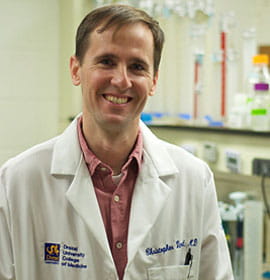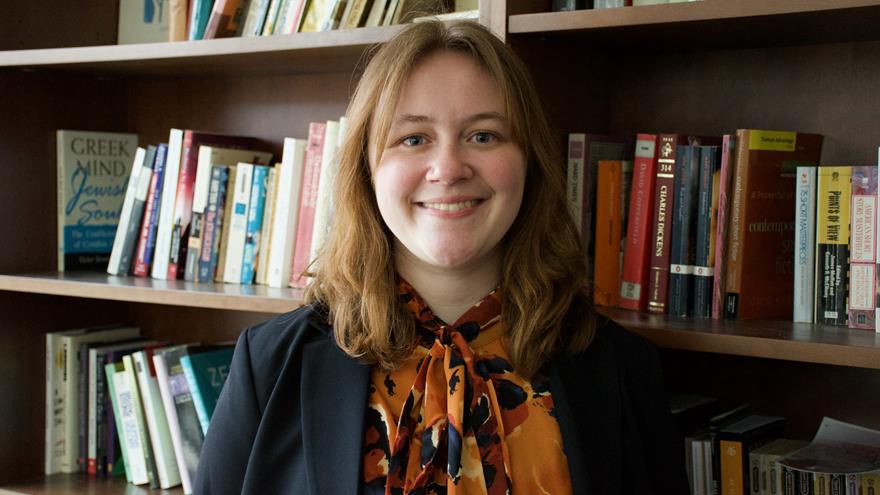Tuberculosis Drug Bioavailability Global Health Research Project Receives Grand Challenges Explorations Grant

Drexel University College of Medicine announced today that it is a Grand Challenges Explorations winner, an initiative funded by the Bill & Melinda Gates Foundation. Christopher Vinnard, M.D., MPH, assistant professor in the Division of Infectious Diseases & HIV Medicine, will pursue an innovative global health and development research project, titled "A Novel Diagnostic Test for Poor Anti-TB Drug Bioavailability."
Grand Challenges Explorations (GCE) funds individuals worldwide to explore ideas that can break the mold in how to solve persistent global health and development challenges. Vinnard's project is one of over 100 Grand Challenges Explorations Round 8 grants announced today by the Bill & Melinda Gates Foundation.
"Grand Challenges Explorations encourages individuals worldwide to expand the pipeline of ideas where creative, unorthodox thinking is most urgently needed," said Chris Wilson, director of Global Health Discovery and Translational Sciences at the Bill & Melinda Gates Foundation. "We're excited to provide additional funding for select grantees so that they can continue to advance their idea towards global impact."
To receive funding, Vinnard and other Grand Challenges Explorations Round 8 winners demonstrated in a two-page online application a bold idea in one of five critical global heath and development topic areas that included agriculture development, immunization and nutrition. Applications for the current open round, Grand Challenges Explorations Round 9, will be accepted through May 15, 2012.
Vinnard's project identifies a new technology platform, specifically a point-of-care test for anti-tuberculosis (TB) drug bioavailability, that can be translated into a safe, accurate, and inexpensive diagnostic test, revolutionizing the approach to TB treatment in resource-limited settings. Bioavailability is a measure of the amount of drug that is actually absorbed from a given dose.
"Many TB patients have poor drug absorption and bioavailability, which leads to worse treatment outcomes," said Vinnard. "Yet, the standard method for measuring bioavailability uses technology that is unavailable in resource-limited settings. Our bold idea challenges the current treatment paradigm by proposing that all TB patients should have access to testing for anti-TB drug bioavailability, based on information obtained from an inexpensive point-of-care test, which would revolutionize the treatment of TB around the world."
Vinnard's project will evaluate urine colorimetry as a novel diagnostic test for anti-TB drug bioavailability, with the long-term goal of developing an inexpensive, modest technology that can be utilized in global regions without access to expensive laboratory-based assays. Colorimetry is a technique used to determine the concentration of colored compounds in a solution by measuring its absorbance of a specific wavelength of light.
"We see enormous potential for urine colorimetry to provide detailed, quantitative measures of anti-TB drug bioavailability that would inform clinical decision-making," said Vinnard. "We believe wide use of this testing approach will improve patient outcomes and decrease transmission of TB within low- and middle-income communities."
Drexel News is produced by
University Marketing and Communications.
